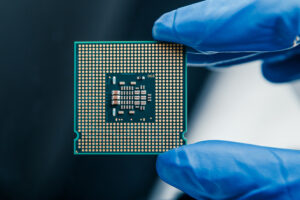Imagion Biosystems (ASX:IBX) gets ready for Phase 2

It’s taken a while to get here, but the US medical device company Imagion Biosystems (ASX: IBX), which listed on the ASX way back in June 2017, is now getting to a really interesting stage of its clinical development, and has just raised $3.5m at 1.5 cents per share to fund this stage.
Imagion Biosystems was founded to develop the potential of a novel diagnostic imaging technology called ‘MagSense’. Think of MagSense as like MRI or PET on steroids in terms of its ability to detect things in the body. The ‘Mag’ part of MagSense is magnetisable iron oxide nanoparticles.
In MagSense, these miniature pieces of iron are conjugated to monoclonal antibodies specific to the target that imaging specialists would be looking for, such, as for example, tumours. The ‘Sense’ part of MagSense involves these antibody-iron conjugates being used to detect where in the body the antibodies have gone to.
What are the Best ASX Life Sciences stocks to invest in right now?
Check our buy/sell tips

Imagion Biosystems has made a diagnostic imaging breakthrough
The reason MagSense works better than conventional imaging modalities is that the contrast created by the iron particles is different when the antibodies have bound to their target. This makes MagSense more accurate for identifying diseased tissue than conventional MRI or CT scans, even with tumours as small as one millimetre potentially able to be detected. When oncologists can find a tumour that early they can usually do something about it.
Take breast cancer as a good example. Across all tumour types, virtually no women die from breast cancer after five years when it’s detected early, but if it’s detected late, the five-year survival drops to about a quarter. The trouble for oncologists today is that about half of all tumours present too late and even when small suspicious lesions are detected, the lack of certainty of conventional imaging often results in no clinical action. MagSense can help change this game, which is one reason why FDA granted it a coveted Breakthrough Device Designation in July 2019.
The SQUID game
Originally, Imagion thought that the ideal way of doing MagSense would be with a sensitive magnetometer called a SQUID, that is, a Superconducting Quantum Interference Device, which can measure extremely weak magnetic fields. That was still a better deal that conventional MRI because SQUID machines are cheaper, and the combination of high sensitivity and specificity at low cost and high speed would allow more cancers to be detected when they are still at a very early stage.
Then around mid-2020 Imagion realised that MagSense was actually better at augmenting MRI. Instead of encouraging the radiology profession to junk the 50,000 MRI machines currently installed globally, the MRI machines would work a lot better because soft tissue abnormalities would be much easier to identify, with an identifiable change in image contrast when cancer cells are present.
Finally, clinical data
Imagion took a while as a listed company to optimise its technology, so it wasn’t until mid-2021, a tedious four years after the IPO, that the first clinical study of MagSense commenced.
This Phase 1 investigated the use of MagSense as a means of aiding in the staging of HER2 positive breast cancer, by detecting if the patient’s tumour had spread to the lymph nodes. HER2 positive breast cancer was the indication that gained MagSense its Breakthrough Designation. These days, with this kind of cancer, you have to biopsy or surgically remove the lymph nodes to confirm metastases.
However, around half of all HER2 positive breast cancer patients have no nodal disease. MagSense provides, for the first time, a non-invasive way to the tumours which could eliminate all those unnecessary biopsy procedures.
The data from this Phase 1 in HER2 positive breast cancer finally became available just before Christmas 2023. It evaluated 13 patients across four clinics in Australia and showed that the product was safe and well-tolerated and, importantly, blinded radiologists could use MagSense images to distinguish suspicious lymph nodes infiltrated with metastatic HER2 positive tumour cells, from non-cancerous lymph node activity.
Phase 2 is coming
So Imagion had finally proven the tech worked in the clinical setting. The trouble was that by the time the encouraging data became available the company was more or less out of money. 2024 saw former CEO Bob Proulx come back to the company as Executive Chairman to help get it recapitalised.
With that arduous task completed, Imagion has now turned its attention to preparing for a Phase 2 study in HER2 positive breast cancer. Earlier this month Imagion had a meeting with the FDA regarding what the Agency was expecting in that Phase 2 and Imagion will now file its Investigational New Drug application. The company believes that it can start this study next year.
HER2 positive breast cancer is just the beginning for Imagion. The company believes that MagSense has utility across a broad range of cancers, and it will look into prostate and ovarian cancer in the near future. Also, given the quantitative nature of the MagSense signature, it’s working in harnessing the power of AI and machine learning to further boost its diagnostic power.
Currently, the upside from MagSense in HER2 positive breast cancer is being priced at a mere $3m or so. That’s a pretty low number for a technology that has no obvious competitors in a space where there’s likely to be strong demand down the track. Not to mention the fact that MagSense really no longer has fundamental technical risk, and in terms of its clinical experience, probably only needs to show non-inferiority to ultrasound in order to gain marketing approval. Our friends at Pitt Street Research have valued the company at $0.123 per share in a conservative base case scenario where it only pursued HER2 positive breast cancer. And that could be the tip of the iceberg.
It’s been a long time getting here, but history has yet to overtake this plucky company, one that knowledgeable investors who know the diagnostic imaging space ought to pay attention to.
Imagion Biosystems is a research client of Pitt Street Research.
Disclosure: Stocks Down Under/Pitt Street Research directors own shares in IBX.
Blog Categories
Get the Latest Insider Trades on ASX!
Recent Posts
Geopolitics, AI, and Energy, The Three Pillars of Investment Growth in 2026
Investing right now feels riskier than ever – messy geopolitics, the AI boom, and power shortages are all piling on.…
ReadyTech (ASX:RDY) Down 57%, Where’s the Operating Leverage?
ReadyTech Soft Half Keeps Pressure on the Stock ReadyTech has had a rough 12 months. The stock has fallen from…
Adisyn (ASX:AI1) Graphene Makes Drones Harder to Detect
Big Step in Drone Stealth With Graphene Adisyn (ASX:AI1) has successfully completed an early proof of concept demonstrating that graphene…


